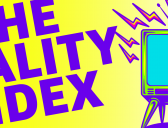Players who spend more than £70 ($97) per month on loot boxes are often more likely to show more significant signs of harmful gambling habits, according to GambleAware-commissioned research.
The report was curated by the University of Plymouth and the University of Wolverhampton, with over 7,000 loot box buyers included in the research.
Loot boxes have been a large talking point in the UK recently, and some countries in mainland Europe have already classified them as a form of gambling.
What were the key findings of the report?
Researchers conducted secondary analysis looking at previous loot box reports.
7,771 loot box buyers across six surveys were examined. Half of these in-game features’ revenue was generated by just 5% of users. These individuals were spending above £70 each month.
Players who spent more scored higher on the Problem Gambling Severity Index (PGSI). One-third of people from the above group ranked at eight or above. Meanwhile, players who spent above $400 (c. £291) averaged a score of 10 on the PGSI.
The research found that young men were more likely to use loot boxes. The propensity for use rose as ages and education levels lowered.
Ethnic minorities and the unemployed were over-represented in purchasing figures, too.
According to the report, no correlation was found between loot box purchases and the individual’s level of disposable income.
“Our work has established that engagement with loot boxes is associated with problem gambling behaviours”
Dr James Close, Senior Research Fellow at the University of Plymouth, said:
“Our work has established that engagement with loot boxes is associated with problem gambling behaviours, with players encouraged to purchase through psychological techniques such as ‘fear of missing out’.
“We have also demonstrated that at-risk individuals, such as problem gamblers, gamers, and young people, make disproportionate contributions to loot box revenues.”
The conversation around loot boxes
Loot boxes and their possible links to gambling have become a huge talking point in the UK. Last September, the Department for Digital, Culture, Media and Sport (DCMS) launched a consultation calling for evidence of this feature and potential similarities to gambling.
In Belgium, loot boxes were banned in 2018. If companies do not comply with these regulations, they can face an €800,000 (£692,280) fine and individuals could five years’ imprisonment.
Not far away in the Netherlands, loot boxes were banned in the same year. In October 2020, the Dutch court sided with the country’s gambling regulator and ordered that EA would pay a fine worth millions of euros. The company was believed to have breached the country’s gambling regulations.




